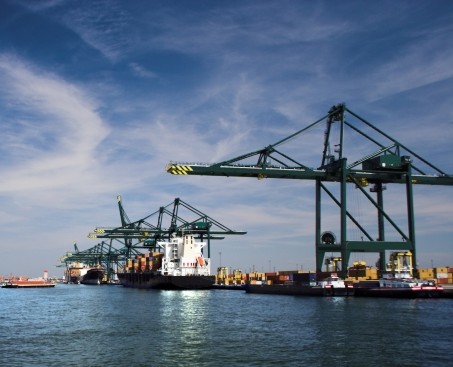 In the context of increased scale of carriers and vessel sizes, stakeholder opposition to port expansion, and heavy regulation, ports prepare their strategic response. A port’s competitive strength strongly depends on its capability of developing competitive advantages. Ports consider options such as strategic partnership(s), or any form of collaboration, which could lead to more or alternative combinations of unique resources as sources of competitive advantage. Taking an extended resource base perspective, the competitive advantages of the Antwerp port cluster are analyzed for its hinterland network area, based on 59 interviews with port experts. Against expectations based on literature on the advantages of collaboration, the results of our analysis show that the port’s hinterland extension did not result in new competitive advantages. This leads to the reflection that today we cannot assume integrated port clusters always lead to positive strategic outcomes.
In the context of increased scale of carriers and vessel sizes, stakeholder opposition to port expansion, and heavy regulation, ports prepare their strategic response. A port’s competitive strength strongly depends on its capability of developing competitive advantages. Ports consider options such as strategic partnership(s), or any form of collaboration, which could lead to more or alternative combinations of unique resources as sources of competitive advantage. Taking an extended resource base perspective, the competitive advantages of the Antwerp port cluster are analyzed for its hinterland network area, based on 59 interviews with port experts. Against expectations based on literature on the advantages of collaboration, the results of our analysis show that the port’s hinterland extension did not result in new competitive advantages. This leads to the reflection that today we cannot assume integrated port clusters always lead to positive strategic outcomes.
The port study titled “Competitive advantages in integrated port clusters: an empirical disillusion of the extended resource pool for the Antwerp seaport” authored by PortEconomics member Elvira Haezendonck along with Mychal Langenus (Vrije University) was presented in the IAME 2017 Conference held 27-30 June in Kyoto, Japan. The paper of the study is available and can be freely downloaded @PortEconomics.












